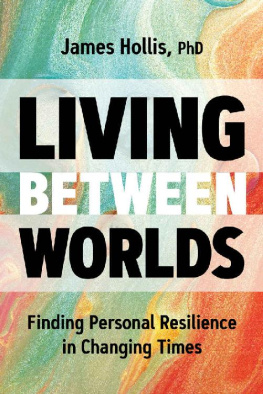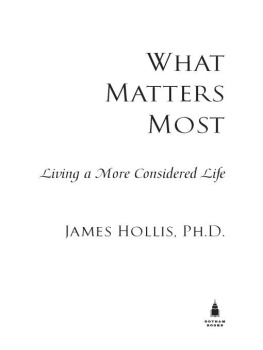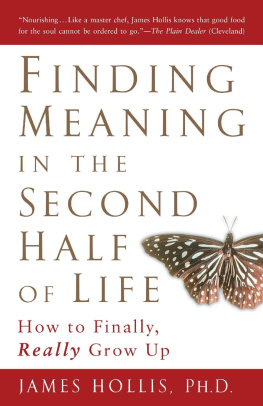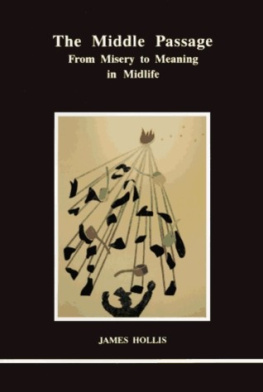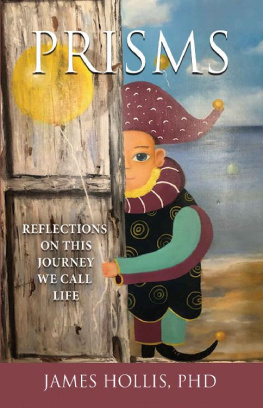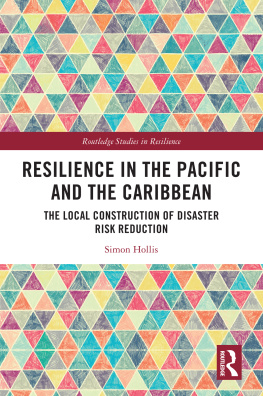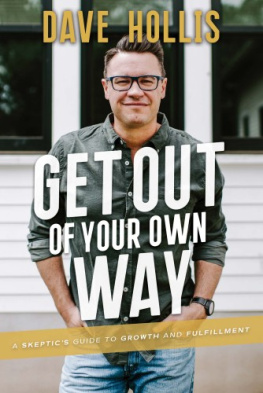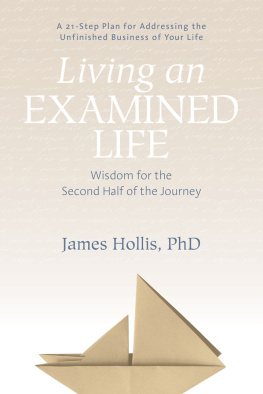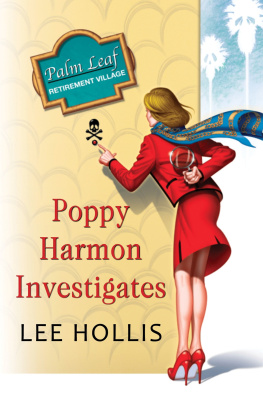James Hollis - Living Between Worlds: Finding Personal Resilience in Changing Times
Here you can read online James Hollis - Living Between Worlds: Finding Personal Resilience in Changing Times full text of the book (entire story) in english for free. Download pdf and epub, get meaning, cover and reviews about this ebook. year: 2020, publisher: Sounds True, genre: Religion. Description of the work, (preface) as well as reviews are available. Best literature library LitArk.com created for fans of good reading and offers a wide selection of genres:
Romance novel
Science fiction
Adventure
Detective
Science
History
Home and family
Prose
Art
Politics
Computer
Non-fiction
Religion
Business
Children
Humor
Choose a favorite category and find really read worthwhile books. Enjoy immersion in the world of imagination, feel the emotions of the characters or learn something new for yourself, make an fascinating discovery.
- Book:Living Between Worlds: Finding Personal Resilience in Changing Times
- Author:
- Publisher:Sounds True
- Genre:
- Year:2020
- Rating:5 / 5
- Favourites:Add to favourites
- Your mark:
- 100
- 1
- 2
- 3
- 4
- 5
Living Between Worlds: Finding Personal Resilience in Changing Times: summary, description and annotation
We offer to read an annotation, description, summary or preface (depends on what the author of the book "Living Between Worlds: Finding Personal Resilience in Changing Times" wrote himself). If you haven't found the necessary information about the book — write in the comments, we will try to find it.
Living Between Worlds: Finding Personal Resilience in Changing Times — read online for free the complete book (whole text) full work
Below is the text of the book, divided by pages. System saving the place of the last page read, allows you to conveniently read the book "Living Between Worlds: Finding Personal Resilience in Changing Times" online for free, without having to search again every time where you left off. Put a bookmark, and you can go to the page where you finished reading at any time.
Font size:
Interval:
Bookmark:

My thanks go to loved onesmy Jill and our children,
Taryn and Timothy, Jonah and Seah.
I also offer my gratitude to my friend and agent, Liz
Harrison; to my skilled editor, Jennifer Y. Brown; and to
the people of the Jung Society of Washington, DC.
And for my abiding friends,
in the order in which I met them
Kent, Carl, Stephen, Travis, Sean, Martin, and Lloyd.
CONTENTS
We look at the world once, in childhood.
The rest is memory.
LOUISE GLCK
Youll never be complete,
and thats the way it should be.
Inside you one vault after another opens endlessly.
Dont be ashamed to be a human beingbe proud.
TOMAS TRANSTRMER
You have to strive every minute to get rid of the life you have planned in order to have the life that is waiting to be yours.
JOSEPH CAMPBELL
If we define religion as the state of being grasped by an infinite concern we must say: Man in our time has lost such infinite concern. And the resurgence of religion is nothing but a desperate and mostly futile attempt to regain what has been lost.
PAUL TILLICH
Id won the world
but like a
forsaken explorer,
Id lost
my map.
ANNE SEXTON
PREFACE
I t is no secret that we live in troubled times. People in most erasand most geographic and spiritual locationshave also thought themselves living in troubled times, and for sure, most individuals come to troubles sooner or later in the course of their own lifetime. Frequently, what we expect from life, from others, from ourselves is not what we experience. Frequently, what once seemed to make sense, now seems inadequate; what we thought we could count on, now uncertain. I have observed this pattern in history, in the news of our own day, and in the consulting room. It seems important, therefore, to look at what happens to us on both a cultural and a personal front during these in-between times when our old maps have erodedor disappeared altogether.
Accordingly, the chapters herein define in-between times further and detail how the insights and methods of depth psychology may help us along the way to a life of personal dignity and meaning. Other chapters explore the nature of healing and review some of the many insights from the founder of analytic psychology, Carl Jung. Still others examine guideposts left for us by folklore, the classics, and Western literature. Although I must employ one-dimensional sentences with a beginning, middle, and end, written in a linear sequence, these themes keep threading back and forth upon each other throughout the chapters because they are all part of our three-dimensional experience of the perplexities of being human. It is always a challenge to represent the globe with a paper map, but I shall do my best to offer what cartography skills I have gained over my lifetime.
Pop theologies and pop psychologies do not weather well, and the electronic toys we have to divert us will only bring us closer to a reckoning. In the 1840s, Danish theologian Sren Kierkegaard expressed his conviction that one may foresee the end of ones age but not save it. That is where I think we may benot on the brink of the New Age but teetering at the edge of new barbarisms. It will take all the resolve and courage we can muster to hold to our values in the face of whatever emerges from our particular appointments with these liminal times. What are those values? Where do we find the means to persevere when all is being called into question?
Some good folks have disliked my books because they are too dark, dont talk very much about happiness, and never mention joy. To this I say, there are many books that do, and they often make promises they cant keep. If they did keep those promises, I would be in line right behind you. Happiness and joy are wonderful things, but they are always contextual, transitory; they cannot be forced by stint of will. I was joyful when my daughter Taryn was born, but it was a joy alloyed with worry for how she would fare in this world and whether I could protect her or even be a good enough father for her. I still worry about the same things for her, even though she is now more than a half-century old and taking care of herself quite well. I also experienced joy when the Eagles beat the Patriots in the Super Bowl, and that was, ahem, some seasons pastan eon ago it now seems.
Happiness and joy dont need to have books talk about them; they will take care of themselves without our futzing around. Happiness is a by-product of being in right relationship with our souls at any given moment. It can come in a variety of venues, but it cannot be willed into being. I would rather talk about the reality of our daily lives; the weight of history, both personal and political, that seems forever with us; and how hard it is to live an honest, decent, and authentic life, as I do believe we must so endeavor.
Neither will this book have a lot of Tom and Sally stories designed to disguise the tough stuff. I will cite real examples from real people when we might discern something from their lives that will help us in ours. If, however, you do not like how your life is turning out, you may need to see what ideas your life is serving, assess whether they are conscious or unconscious, and then try to get better ideas. To that end, I will talk about the cryptic, even unconscious, notions that we serve on a daily basisthe universal themes, motifs, and hidden agendas that are running our lives. Getting some idea about these ideas is the only way we can begin to challenge them and regain our souls journey.
We are all in this together. I have learned so much from you, and I hope you can profit from some of the ideas of this book. All we can do here is our best to draft our own maps and try to help each other from time to time.
JAMES HOLLIS
Washington, DC
2019
When the Old Map Disappears
When men beheld swift deities descend,
Before the race was left alone with Time,
Homesick on Earth, and homeless to the end;
Before great Pan was dead.
EDWIN MARKHAM, A Lyric of the Dawn
Every transformation demands as its precondition the ending of a worldthe collapse of an old philosophy of life.
C. G. Jung
M ore than two millennia ago, a terrifying rumor swept the Mediterranean cultures and caused panic. The rumor? The god Pan had died!
While I realize that this death escaped your notice and has not yet alarmed you, I can assure you that his passing has played a large role in your life. The loss of his vibrant energy plays no small part in the ills of the present day. But Pan is not the only mortal godan oxymoron if ever there was one. Frequently, in the tides of human affairs, what we call history, and in the tides of personal life, what we call crisis, the dominant values, the prevailing energies, and the central metaphors decline and lose their energy. Something dies out, runs its course. Turgid and top heavy, it topples over, seeking replacement by something else. Then comes a very difficult in-between. What we thought we knew, what we thought we understood, what we thought was a reliable map of our world, all seem now to fail us.
Pan once floated our ships, set our courses, lit our fires; he was sexuality, pervasive desire, the very vegetal nature of our being that seeks expression through all of us, the denial of which has led to illness, neurosis, and the necessary invention of palliative psychotherapy and pharmacology. Given that nature and our egos abhor vacuums, Pans absence was quickly replaced by theology, morality, and imposing institutions. However noble their intent, these surrogate gods have severely wounded us, separating us from our natural drives and instinctual promptings. As Jung noted, in the end, all of our problems stem from one sourcethat we are separated from our instincts. As Friedrich Nietzsche added, we are the sick animal. Our surrogate gods have failed us, and the new ones have not yet arisen. We are once again between worlds.
Next pageFont size:
Interval:
Bookmark:
Similar books «Living Between Worlds: Finding Personal Resilience in Changing Times»
Look at similar books to Living Between Worlds: Finding Personal Resilience in Changing Times. We have selected literature similar in name and meaning in the hope of providing readers with more options to find new, interesting, not yet read works.
Discussion, reviews of the book Living Between Worlds: Finding Personal Resilience in Changing Times and just readers' own opinions. Leave your comments, write what you think about the work, its meaning or the main characters. Specify what exactly you liked and what you didn't like, and why you think so.

